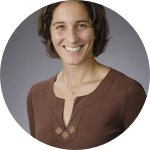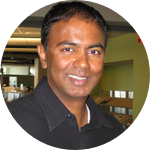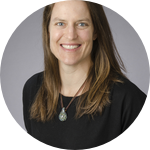About This Project
An increasing number of African democracies are providing free primary education. But when it comes to secondary education, completion rates drop off dramatically. This project develops a mobile money system to pay secondary school fees in rural Benin. It lowers transaction costs, saves relatives time & money, and offers schools a fundraising tool to cover the poorest students' needs. As a result, more kids can afford to attend secondary school.Ask the Scientists
Join The DiscussionWhat is the context of this research?
More children in Africa are completing primary school, but very few go on to complete secondary school. Indeed, the cost of secondary education is prohibitive for much of the world's poor. Remittances - money sent back home by migrants - can and often do offer one solution to this problem. But economists have shown that the cost of transferring remittances, especially to Africa, can be high; and that those who send remittances and those who receive them may hold different preferences on how to spend the money. As a result, less money is remitted.
Mobile technology can be leveraged to offer a cheap, direct method of committing remittances, or any other monetary donation, toward the payment of school fees. This project will develop, pilot, and evaluate this solution.
What is the significance of this project?
Our innovation leverages the mobile revolution in Africa to ensure a reliable, transparent and low-cost method of paying for secondary school fees and improving the financial transparency of public educational institutions. It is unique because it aligns the incentives of all actors involved:
- It improves access to secondary education, relieving parents and relatives from prohibitive transaction costs (for example traveling long distances or entrusting a third-party to deliver the money) but also offering schools a template with which to raise funds.
- It improves the transparency of a public institution by tracking all incoming and outgoing transactions electronically.
- It provides an anchor for the development of mobile money, which remains nascent in Benin.
What are the goals of the project?
- We are collaborating with Benin's largest cell phone company to pilot our innovation. Our engineering team will develop the accounting system that keeps track of all transactions. The cell phone companies will integrate the school-fee payment option into their Mobile Money menu. Our pilot targets 1 high school, and 2,000 students.
- A team of local survey enumerators will conduct face-to-face surveys at the baseline (Summer 2015) and after the first year (Summer 2016) to measure adoption rates, socio-economic, and educational outcomes. They will also collaborate with the cell phone companies to introduce users to the interface.
- the amount parents saved
- the time it took for the school to collect all fees
- the amount of funds raised
using our technology.
Budget
We are working with the Benin cell phone carriers and the pilot high school to develop and test the technology for school year 2015-2016. To do so, we need funding to develop the technology and to evaluate it.
But here, we ask for your support to cover the expenses of evaluating the pilot. Your money will go toward the fielding of before-and-after surveys among school-children and their families in northeastern Benin to evaluate whether our technology has made a difference in their lives.
To conduct these surveys, we are teaming up with the Center for the Study and Promotion of Democracy (CEPRODE), a local NGO dedicated to rigorous program evaluation and with significant experience fielding surveys in Benin. The director of CEPRODE has more than ten years of experience conducting nationally-representative and locally-representative surveys in Benin. CEPRODE will be tasked with recruiting a representative sample of households in Kalalé district (of approximately 2,000 respondents over one month) in July-August 2015 to measure baseline levels of educational completion rates, cell phone ownership and usage, methods and costs of school fee payment, and socio-economic outcomes. It will then be tasked with repeating this a year later, at the conclusion of the pilot phase.
Meet the Team
Team Bio
I spent a year in West Africa in 2007 doing research for my dissertation. During that time, I got to know the Kalalé community in northeastern Benin. What has astounded and motivated me are two equally-striking facts about rural poverty in Africa: first, just how dire it is; but second, how quickly things can change. There were no cell phones and no high school in the region in 2007. Today, everyone owns a cell phone, and the high school is three years old. The limited few who have left their village and succeeded elsewhere are those who were fortunate enough to complete their secondary education. My team and I hope to contribute, even modestly, to breaking the cycle of poverty in one slice of rural Africa. If successful, this intervention could provide a model for other schools in Benin and across the region.Ganz Chockalingam
I have worked extensively over the past 10 years in leveraging mobile phones as sensors and as a delivery platform in various domains ranging from Telematics, Health Care , mHealth and election fraud monitoring.
A sampling of some the applications I have worked on can be found here
http://android.calit2.net/group2/index_old.html
Recently, I have been engaged with a few projects in Africa that uses feature phones via SMS and USSD. I am currently focussed on projects that will help spur the growth of mobile money in West Africa. One of the projects I am working on is with my colleague Dr. Claire Adida, on the use of mobile money to pay for school tuition in Benin. We recently made a week long trip to Benin forging partnerships with the Carriers and the schools to make this a reality.
Jennifer Burney
Environmental Scientist
Additional Information
Our team in front of the Education Ministry in BeninThe pilot school in northern Benin
Project Backers
- 44Backers
- 42%Funded
- $4,180Total Donations
- $95.00Average Donation


